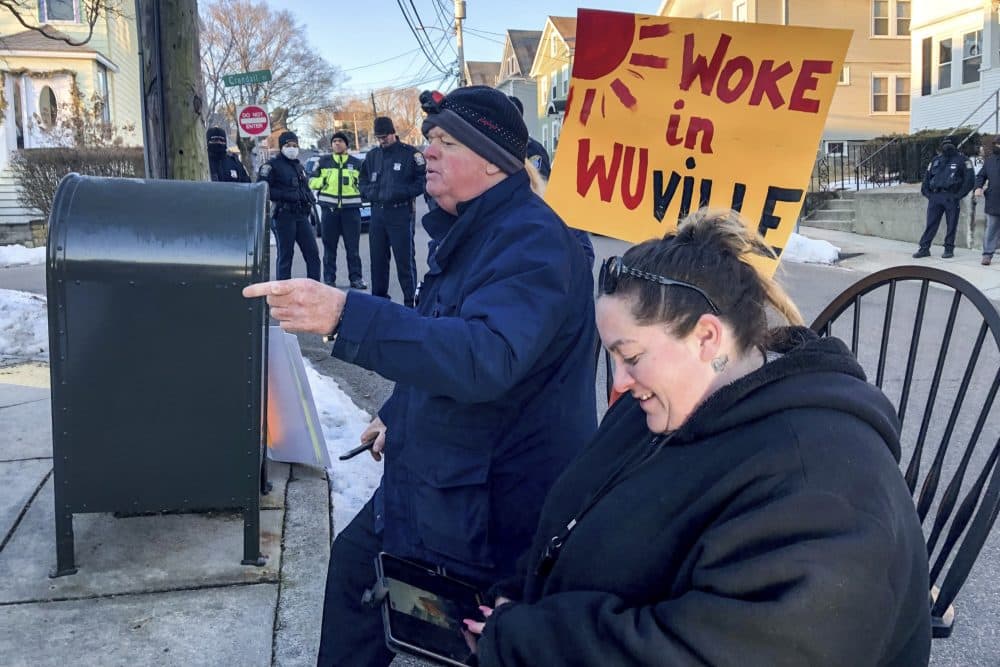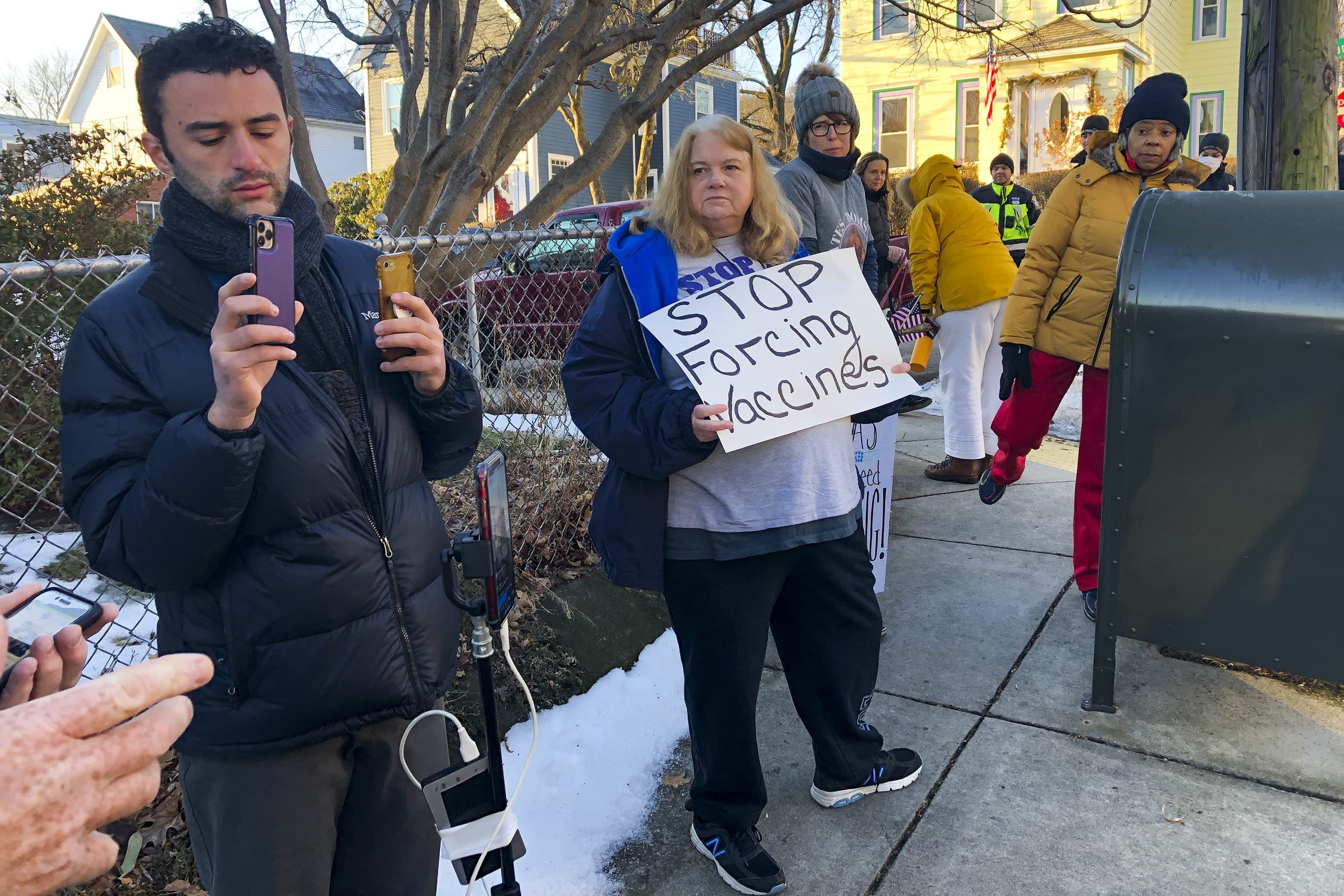Advertisement
Boston City Council considers protest limits after months of demonstrations outside mayor's home

A proposal by Boston Mayor Michelle Wu to limit demonstrations outside private residences has raised a contentious question: What steps can cities take to limit protests without infringing on people's First Amendment rights to free speech?
Wu filed a proposed ordinance to place limits on demonstrations that target homes after months of loud, early morning protests outside her house, typically starting just after 7 a.m.
The protestors are upset over a mandate that city workers be vaccinated against COVID-19, as well as vaccine requirements to enter restaurants and some other businesses in Boston.
Wu's proposal would restrict this kind of "targeted residential picketing" before 9 a.m. and after 9 p.m. Many of the protestors lined up to denounce the measure as an unconstitutional assault on free speech rights at a virtual hearing Monday before the City's Council's Committee on Government Operations.
"This ordinance is directed specifically at us," said Padma Scott, who identified herself as a mother and who testified against the measure. Scott, who refused to get vaccinated, called the vaccines "experimental," even though studies show they’re effective. And she said the mandates are discriminatory.
Scott said she is sorry about the disturbance to Wu's neighbors. But she said the protesters need to target the Mayor's home because it's the only way they can get her to hear their concerns.
"If she would have answered us, we would not have to be there," Scott said. "You do not get to decide when we get to exercise our First Amendment rights."
Kate Tisdale of Boston, another protester, addressed her comments directly to Wu.
"This ordinance that you have sponsored is an attempt to limit people's free speech and expression for the convenience of your family," Tisdale said. "It is cowardly of you — or any administration — to limit the hours of free speech because you find the speech to be inconvenient."
Wu insists she supports free speech. But she says the ordinance would protect her neighbors, who shouldn't be subjected to the daily protests that have been a source of stress and disturbance most mornings for the past several weeks.
Advertisement
“When it is specifically intended to disrupt people's sleep, to crush people's spirits, it really verges more on harassment than on speech," Wu recently told WBUR outside her home.

Some of Wu’s neighbors testified Monday in support of the restrictions. Among them was Nina Lev, who said the protests often include drumming, whistling and shouting. Lev called it an assault on working parents, the elderly and children — including Wu's two young sons.
"If we go outside the house, we're confronted with the most vicious attack signs [against] the mayor, who is not only our mayor but a friend, a neighbor, a mother and a daughter in this neighborhood," Lev said.
Some public officials have also complained that Wu has faced "hateful attacks" because she is Asian and a woman. That includes City Council President Ed Flynn, the son of former Mayor Ray Flynn, who said his father and the two white, male mayors who succeeded him all faced protests at their homes. But they were never as vicious as those directed at Wu.
"I think a lot of this has to do with Mayor Wu being a woman and with Mayor Wu being a woman of color," Flynn said. "And now we have this vicious and extremely aggressive protesting."
Flynn was among at least three city councilors who seemed open to an ordinance that placed reasonable limits on the protests. But Councilor Kendra Lara pushed back, saying "we don't get to tell our constituents when it's appropriate ... to protest." Lara says the measure could also make it harder for people of color to mount protests in the future.
"The unintended consequences will no doubt affect marginalized communities, who use civil disobedience and direct action as tactics to help secure civil rights."
The Wu administration argues that the proposed ordinance would be constitutional, based on past Supreme Court rulings. Eugene Volokh, a constitutional expert at the University of California, Los Angeles law school, says that's true: as long as the law doesn't discriminate — and places limits on all forms of protest.
"The government can't discriminate based on topic,” Volokh said. "So, for example, it can't exclude labor picketing. But content-neutral restrictions on residential picketing — on targeted picketing of particular homes — are constitutional."
But critics say the proposal isn’t politically neutral because Wu filed the proposal specifically to limit protests in front of her house. And if the council approves the measure, protesters promise to challenge it in court.
The City Council has yet to schedule a vote on the issue.
This segment aired on March 15, 2022.
